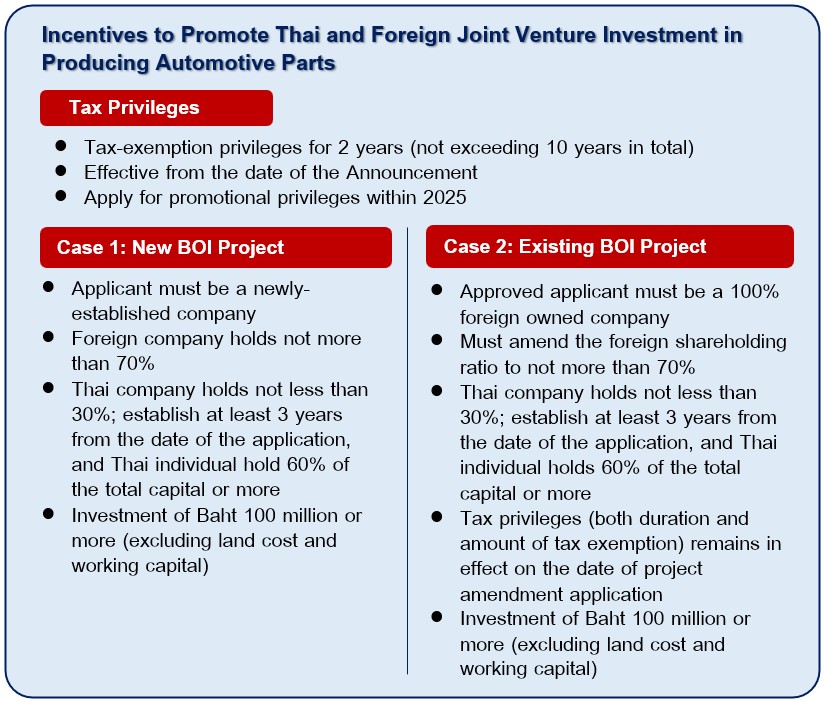Thailand's efforts to become a global leader in electric vehicle (EV) production have undoubtedly successful, but also have had some negative consequences. The government’s incentives to EV makers have led to an oversupply of EVs, sparking a price war in the conventional internal combustion engine (ICE) vehicle market, and threatening the survival of local auto parts suppliers.
In 2023, the EV sales surged by sixfold to 76,000 units, accounting for 12% of all vehicles sold, while the sales of internal combustion engine (ICE) vehicles dropped by 13.7% to 238,570 units. The EV boom was driven by the government incentives that offered tax breaks and low-tariff rates to Chinese EV makers, who flooded the market with very competitive prices. In 2024, the overall demand for automobiles collapsed as consumers faced difficulties in accessing car loans after a 24% rise in loan defaults. The economic slowdown and the ongoing challenge from EV policies dampened the production of ICE vehicles in May 2024 by 16% year-on-year to 126,161 units.
The government’s incentives granted to Chinese EV makers have hurt the most to local auto parts industry, which employs more than 400,000 workers and contributes about 10% of the country's gross domestic product. The government incentives required the Chinese EV makers to use 40% local parts, but President of the Thai Auto-Parts Manufacturers Association (TAPMA), Mr. Sompol Tanadumrongsak, estimated that only 3% of Thai auto parts makers could meet the specifications of the Chinese EV makers. As a result, most of the Chinese EV makers imported their parts from China, while the demand for Thai automotive parts makers declined sharply. Mr. Sompol said that at least a dozen parts producers have shut down and more are likely to follow suit.
To save the ailing sector, Mr. Sompol suggested that the government encourages joint ventures between Chinese and Thai entrepreneurs, with a condition for technology transfer to the local partners. In fact, the Board of Investment has already approved a scheme that grants a 2-year tax exemption incentive to both new and existing auto parts makers who form a joint venture with a Thai company that holds at least 30% of the total capital.
Author’s Note:
With a new BOI incentive scheme, a foreign investor would enjoy more tax benefits if they could establish a joint venture with a Thai partner as shown in the below table. Although it is too early to judge, we anticipate the BOI could turn this incentive into a mandatory condition for new foreign EV manufacturers to form joint ventures with Thai enterprises if this motivation measure does not come to fruition.


